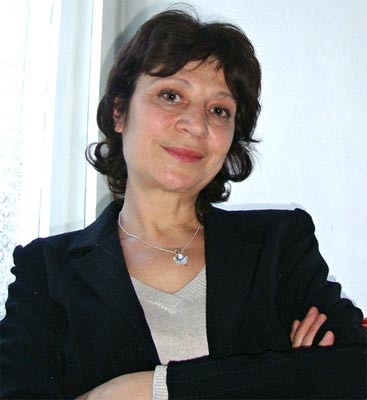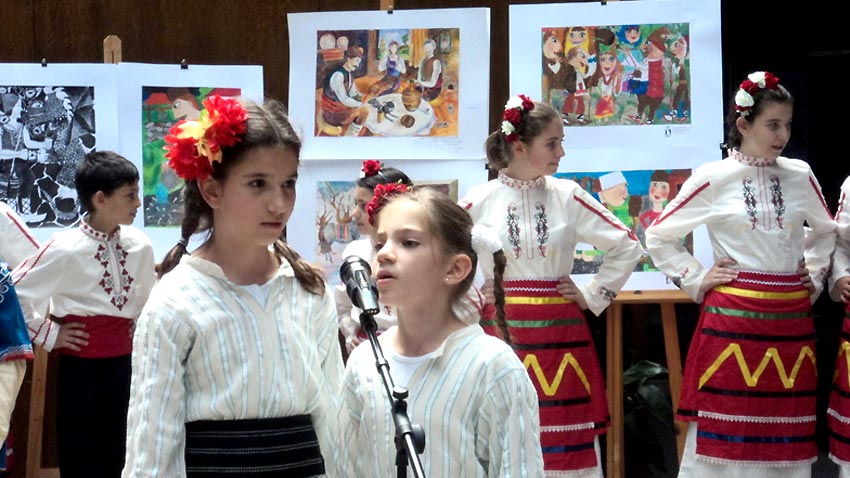Child and Folklore Foundation has already published books containing Bulgarian proverbs and riddles translated into various languages by Bulgarian children living abroad. Preparations for the fourth edition of the series are currently in progress. Lilia Stareva, who is a folklorist and compiler of this enchanting Bulgarian verbal wealth, told us more about children, their creativity and future plans.
 “This is a series by Child and Folklore Foundation, which we have been working on for a long time together with the State Agency for Bulgarians Abroad. I believe it is very important to immerse children in the wisdom of our people and give them this wisdom. I say immerse because children are very close to folklore, to fairy tales of old Bulgarians and they can understand them well. Children ask questions continuously - who, why, how? This world is in front of them. Folklore is very understandable to them, precisely because it carries this child's curiosity and openness to the world, it brings many values and important messages of goodness, of growing up in this world. Although these wisdoms date back to ancient times, they were tested by life. And I'm really happy when I see the great desire children have for folklore. They enthusiastically joined in a competition that the foundation has been running for 15 years. This is ‘The Wisdom of our People’ - a contest for illustration of Bulgarian folklore myths, legends, fables, fairy tales, proverbs, proverbs and riddles, as well as holidays and rituals. Children draw and at the same time grow up through them. Not only do they learn, they begin to like, respect and focus on the meaning of folklore.”
“This is a series by Child and Folklore Foundation, which we have been working on for a long time together with the State Agency for Bulgarians Abroad. I believe it is very important to immerse children in the wisdom of our people and give them this wisdom. I say immerse because children are very close to folklore, to fairy tales of old Bulgarians and they can understand them well. Children ask questions continuously - who, why, how? This world is in front of them. Folklore is very understandable to them, precisely because it carries this child's curiosity and openness to the world, it brings many values and important messages of goodness, of growing up in this world. Although these wisdoms date back to ancient times, they were tested by life. And I'm really happy when I see the great desire children have for folklore. They enthusiastically joined in a competition that the foundation has been running for 15 years. This is ‘The Wisdom of our People’ - a contest for illustration of Bulgarian folklore myths, legends, fables, fairy tales, proverbs, proverbs and riddles, as well as holidays and rituals. Children draw and at the same time grow up through them. Not only do they learn, they begin to like, respect and focus on the meaning of folklore.”

Bulgarian children abroad are not only artists, but ambassadors of Bulgarian culture and translators. They spread Bulgarian folk culture around the world; they are part of it and through it have a new self-esteem.
“Our meetings with the Bulgarian diaspora are very moving. They are bigger fans of our folk creativity and folklore, of our long-lived spirituality than we who are living here. That's because they miss everything Bulgarian and because they are separated from their homeland," Lilia Stareva says. “Our riddles have been translated into five European languages, and proverbs into 12 languages. Children search for a meaningful analogue. This is an intercultural communication. To make comparative analysis of messages, language culture, linguistic wealth of different peoples is not easy, but they do it well without realizing that they are doing it. In this way they study in parallel two cultures. Children identify themselves with their own culture, but also appreciate the good and creativity of other peoples. They find we are close and not that different. They see that moral values are all over the world and can fit into them. Things are simpler with small children: they draw, translate, compete, read books and are happy. Just tell them the story and ask them to participate! And they are doing really well.”
English: Alexander Markov
Photos: prikazensviat.comOn the first day of the incoming 2025, the small town of Razlog in the Pirin Mountain will wake up to the sound of bells, zurnas and drums . Traditionally, the colorful Kukeri festival "Starchevata" will begin at 11:00 a.m. on the central square..
Every holiday has its own flavour, its own 'clothes' and its own tunes. Christmas is no different. "Little is known about traditional Bulgarian carols and their purpose, little is said, and even the wrong things are said. But the most important thing is..
On Christmas morning the glad tidings have spread that the Son of God was born, making it a special day celebrated with a lot of festive rituals. After Christmas Eve, when families get together for a festive meal, comes Christmas. On 25 December the..

+359 2 9336 661
